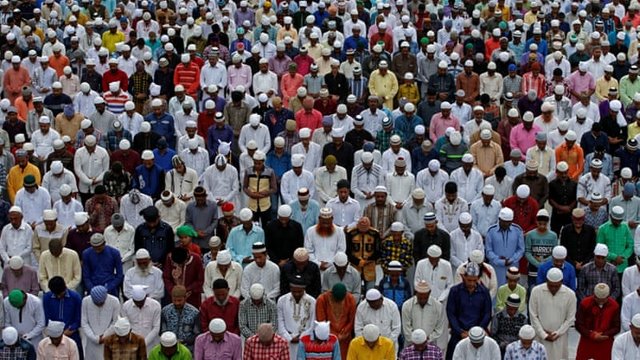
An Indian social worker says she was denied a job at an orphanage based in the Indian capital of New Delhi because her recruiter felt that her hijab made her look "like a Muslim lady".
"Everything was going smooth, we exchanged many emails," Nedal Zoya, a graduate from Tata Institute of Social Sciences in Mumbai, told Al Jazeera.
"But a few days ago, I got an email stating that 'I am sorry to inform you that even [from] a distance of one kilometer you look like a Muslim lady due to your external Muslim gears'." This comment was referring to her hijab, a headscarf worn by many Muslim women who feel it is part of their religion.
After being short-listed by the Delhi Orphanage for Girls in October for the post of social worker, Zoya was asked, by Harish Varma, the president and CEO of the orphanage, to give an online test and send a picture of herself to.
Varma suggested Zoya remove her hijab as one of the pre-conditions to proceed with the recruitment process.
Muslim girl with 'modern thoughts'
After Zoya refused to do as she was asked, Varma sent her an email expressing that he was "shocked" to know that "conservative Islam was her priority, not humanity", and that all her "higher education has gone down drain".
In the email exchange between Varma and Zoya, obtained by Al Jazeera, Varma expressed that he would not allow any kind of religious activities inside the orphanage.
Zoya was later informed that another Muslim girl with "modern thoughts" and a "religion free mindset" was hired for the same post.
"I don't take it as a rejection. I don't consider myself a victim," the 27-year-old said.
"My motive was to create [an] awareness as I am not the only one who has faced such discrimination. People at least need to discuss this matter so that such discrimination on the basis of religion and appearance can be questioned," she said.
Local media reported that Saurabh Bharadwaj, Member of the Delhi Legislative Assembly from the ruling Aam Aadmi Party said that his government will take action against Varma if Zoya will officially lodge a complaint, adding that the Indian constitution did not allow anyone to discriminate on the basis of someone's faith.
'Secular' appearance
Varma told Al Jazeera that the decision was taken based on her eligibility for the job and that the candidate he was looking for should be "secular".
"We are a secular country, we are not giving preference to people based on their religion, which is why I want my orphanage to be religion-free," Varma told Al Jazeera.
"My religion is humanity and yes I don't want any influence of any religion in my organisation."
India's constitution guarantees right to freely profess, practice, and propagate one's religion.
Zoya believes it was an example of how Islamophobia in India is growing and how it can affect the future of India's Muslim population, some 14 percent of the country's 1.3 billion people.
"[My] scarf adds to my boldness and confidence. And it's completely my choice to cover my head," she said.
In 2015, a 22-year-old Masters in Business Administration graduate was denied a job in Mumbai as the company said it only hired "non-Muslim candidates".
'Growing trend of Islamophobia'
Rights groups and many studies say Muslims, along with Dalits and other marginalised groups, face discrimination in jobs and the housing sector. Sachar Committee instituted by the previous UPA government submitted its report in 2006, which painted a negative picture of Muslims' economic and educational status.
Since Prime Minister Narendra Modi came to power in 2014, there has been an increase in attacks on Muslims by Hindu far-right groups. More than a dozen Muslims have been killed by cow vigilantes since then.
In April, Amnesty International released a report urging authorities to ensure that there was no impunity for those responsible for public lynchings and other hate crimes against Muslims in several states.
"This growing trend of Islamophobia needs to be stopped in its tracks. State police departments must ensure that those responsible are brought to justice," the report said.
Zoya feels Islamophobia needs to be tackled at its roots.
"I believe that Islamophobia can be significantly reduced if not totally eradicated if the parents/guardians/families shape their children's idea about religion, peace, love and harmony in a way that they are not influenced by what they see or hear but rather by their own logical reasoning and non-judgemental approach.
"For any kind of change to take place, the mindsets must change."
Hi! I am a robot. I just upvoted you! I found similar content that readers might be interested in:
https://www.aljazeera.com/news/2017/11/muslim-woman-india-denied-job-wearing-hijab-171116112939624.html
Downvoting a post can decrease pending rewards and make it less visible. Common reasons:
Submit